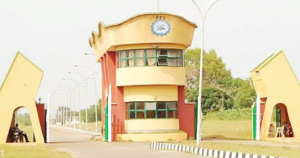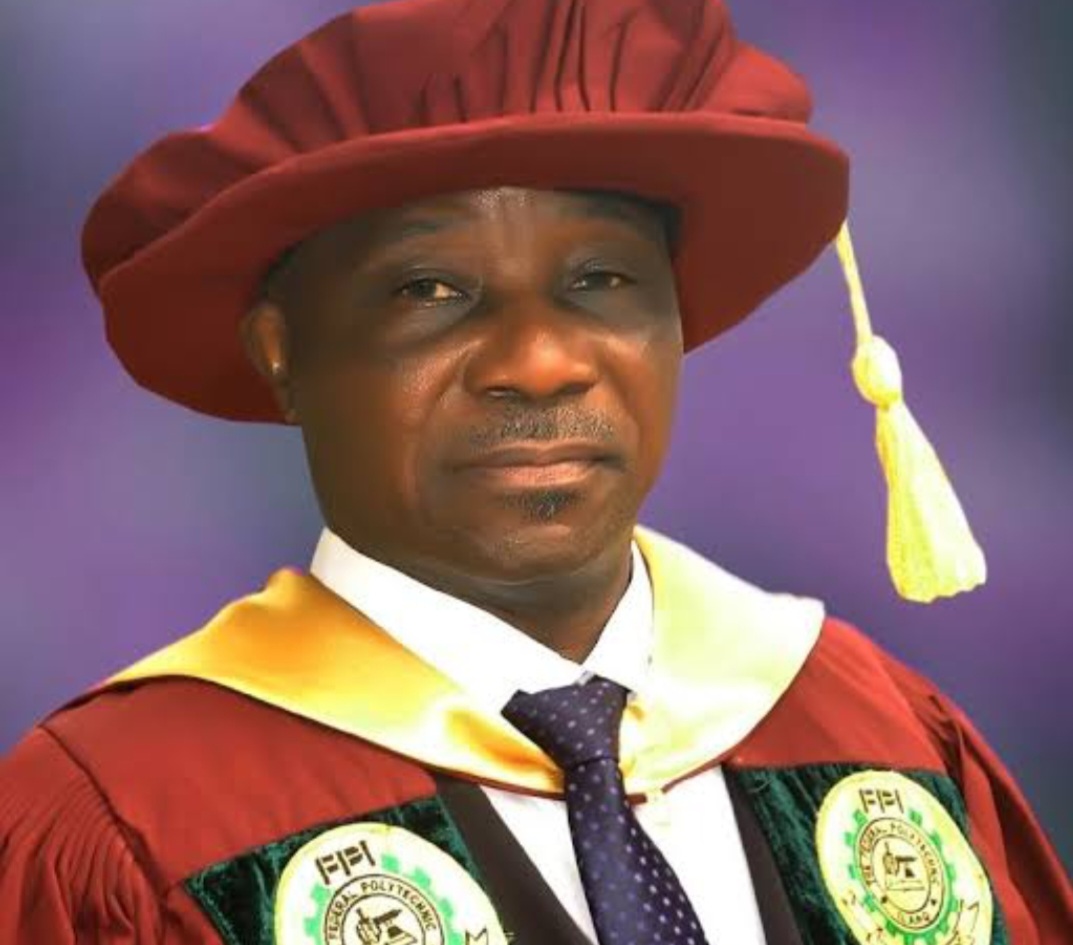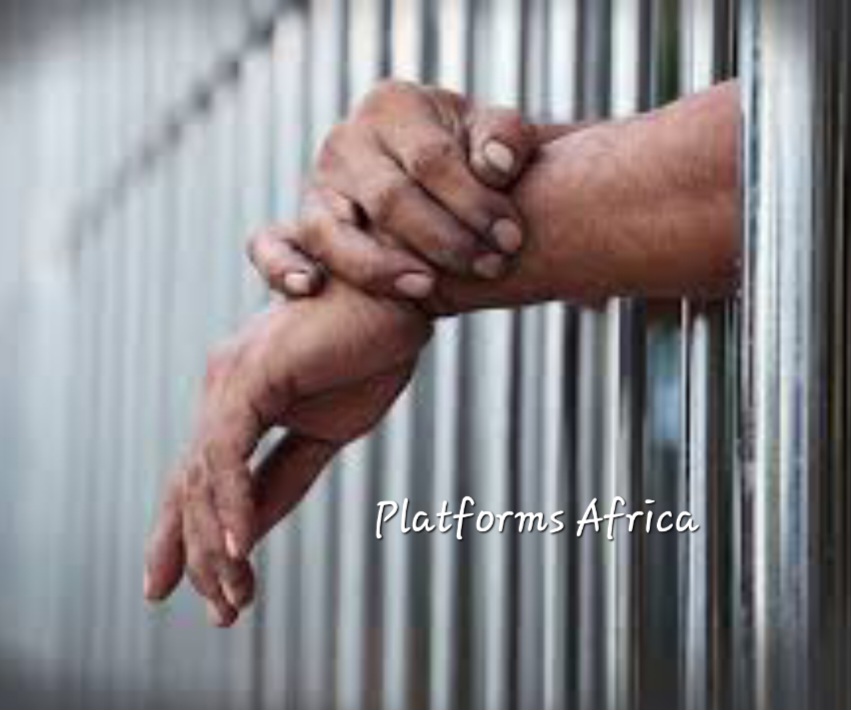Do you know that the immediate-past Rector, The Federal Polytechnic Ilaro, Architect Olusegun Olanrewaju Aluko, Ph.D, once hawked puff-puff at Osun Osogbo, in a bid to put food on the table and support his education as a child? In this exclusive interview with Platforms Africa’s Team Lead, Adeola Yusuf, the frontline architect who transformed The Polytechnic, opens up on his landmark achievements at the institution, as well as growing up with a mother that was very hardworking, and prayerful who pushed children also to work hard. His wish was for her mother to witness his retirement and see how her strategy at upbringing occasioned his achievements at The Polytechnic Ilaro. She died years before the day! Excerpts;
Can we meet you sir? Your name and destination
I am architect Doctor Olusegun Olanrewaju Aluko. Now, the former Rector of the federal polytechnic Ilaro. I just step down as the rector day before yesterday. That is 26 of September 2022.
It is now out of place to congratulate you. Looking back what are those things you want to talk to us about as achievement in the years that you were in the saddle of leadership.
Yes, thank you very much. I spent 8 years as the rector of the institution and looking back, I know how to grow the institution. Very enviable status now. In times of the curriculum that is the number of programme that was available. I think I added about 24 new programmes to the curriculum of the polytechnic. Because, looking back i discover that the polytechnic wlare established almost the same time as Federal polytechnic Ilaro, most of them were ahead of us in times of programmes. So my first challenge is to make sure that I meet up with that kind of programmes. So I was able to establish about 24 programmes both at ND and HND which include what you love to know like Mass communication department, Welding and Fabrication,Agric Engineering, Agric Sciences, Insurance etc.
So I observed you turn the polytechnic into a construction site. Have been able to see a lot of buildings you constructed. Does this have anything to do with your background as an Architect?
Yes, it has to do with it. And at the same time it has to do with the infrastructural deficit of the polytechnic. Before I became their rector, there was no single lecture theatre in the polytechnic. And, now today we can boast of about 4. They are 500 seater auditorium (1), 250 auditorium (2), and 300 seater international conference center. So apart from being an architect that is infrastructural deficit that I quickly needed to address when I came in. So, those are the first challenge. Then, a lot of other buildings, entrepreneurship, mass communication department, studios and workshop for environmental studies,Agric village because we have a lot of agricultural land here. We have about 893 hectares of land in this polytechnic and we ve fully built about maybe 20 or 25% of it. So what I did was to make sure that we use most of it for Agric. I consulted the agricultural village where you have all the agricultural department settled. Then, we are able to do other infrastructure like the petroleum station. So many things that we are able to do even the roads because we have to touch all the roads.
READ ALSO: Meet Idowu Ogunfayo, First Female Ag. Rector In Federal Poly Ilaro History
EXCLUSIVE: LASUSTECH Presents 32 Programmes For NUC Accreditation
727,864 Get 5 Credits Including Maths, English In NECO 2022 SSCE Internal Results
Abiodun’s Ex-Aide,Rufai Bags Five-Year Imprisonment In US Over Wire Fraud
UK Varsity Lecturers Begin Strike

Will I be mistaken to say this is first in the country for a petrol station to be named after an institution?
You see maybe their own concept was different. Maybe some of them just have franchise but this is our own. We built it, we registered in our name. So it is our own and that is why we opened it to the public also. So that the public also can benefit. The interest is that when they are selling it 190 naira in the town, we sell it about 170 naira. So there is 20 naira different and that is one of the CSR we have to do for the community.
So during your leadership sir, how was the relationship with the whole community like?
Oh, it is very very cordial. Because one thing we did was we have a polytechnic Ilaro community forum where we discuss all the issues because if you take federal polytechnic away from Ilaro. Ilaro becomes an empty shell. So they have to guide the institution. Infact they are up downtown. When they were conflict here and there so what we have to do is to bridge the communication gap. We allow the people, landlords, community leaders to come and interact with is on how to guide this student because 95% of our students live off campus so we have to create that relationship so that there will be cordial relationship between them. And I made them to know one thing that, Yorubas thay said if you ask somebody to beat your child it doesn’t come from within you, you are just trying to play politics. So I made them to understand if any of this student thinks instead of taking the law in their hands they should come and report to me. We will know what to do. And we equally tell the students if any landlord did something wrong to you instead of taking law to your hands come and report to us. If the landlord refuse to take to correction, we blacklist those landlord and tell our student anybody that rent houses in that area we are going to punish them. So once the landlord know that they are consequences for their actions they are very very cordial with the students, and the student also know that they are consequences for their own action. With that we are able to achieve a lot of peace.
Okay, with this achievement, you are retiring and I know that your service is still needed elsewhere. The issues about development in Nigeria is a very key one. So after polytechnic Ilaro’s Rectorship, what next sir?
Naturally, I will just wait and see where God direct that is just it. I won’t decide that this is where I want to go because I don’t have such power but I will still remain at Federal polytechnic, Ilaro because one thing now is sure that if my service is needed anywhere, I am going to serve the country because we have no other than Nigeria.This is a very good country.
So talking about of country now, can you access the educational sector in the country, tertiary education in the country?
Yes, there are a lot of problems with tertiary education in Nigeria and the most important aspect of it is from “funding is key”. For instance, let me use Ilaro as an example. Electricity is non-existence in Ilaro. In the polytechnic we have about 25 generating plant. 3 500 KVA, 4 250 KVA scattered all over the campus. It is interesting to know that we use 25,000 litre of diesel every 25 days. We budgeted diesel with 300 naira, now it is 800 naira. Funding is very very key. And the problem we are having in this country is that we seem to assume that education should be free. Anything that is free is not genuine and that is the mistake government is making. Trying to make tertiary education free. It is not easy to fund this schools. But one thobg I want government to do is that let people pay for education and provide scholarship for the students.
The polytechnic system is established to address a certain issue but the trend in Nigeria now is that state and a lot of organization are changing polytechnic to university. What is your comment about this?
It is a monumental mistake because there is no country that can develop without technology. If you depend on theory, theory, theory we can not get anywhere and that is the problem of Nigeria now. Now, Nigeria, we have railway going on, we have Dangote refinery going on, where are the skill personnel to manage this things. Chinese will come, India will come. Whereas this are things are polytechnic graduates are to be able to do. And in the olden days, we are doing it. If you look at the small automobile workshop we have in the olden days, there were owned by even those that finish in technical colleges. Carpentry workshop where they do furnitures they were owned by people that even go to Technical College.

I have an uncle, who has a furniture factory, he just went to polytechnic and through the skill he had there because he red carpentry in the polytechnic there, not even in Nigeria, in UK. But what do we have today,we brought furniture from China. This are things that did not suppose to happen in this country. And that is why they are getting it wrong, converting instead of strengthening the polytechnics. Why, because of dichotomy. Government itself cause some of the problems. Give everybody equal opportunities even you are from the polytechnic or university. When you get to the field you prove yourself. And I am advocating for that, let us have a playing level ground. If you say you are an engineer, good, you will he paid as an engineer. If you are a technician, we pay as a technician. But don’t let this one is superior to this one it will not get us anywhere.
READ ALSO: Call Them Yewa Or Egbado, This Is Their History
King Sunny Ade At 76: Man of Music, His Fame And Five Wives
How UI, UNILAG, LASU Researchers, Others Broke Guiness World Record
Dinka Ethnic Group: Tales of World’s Tallest Tribe
Marry, Divorce or Die, You Have Fingers To Lose; Damn Tale of Dani Tribe
Kuburat Elegbede Cash Madam, Tale of Mathematician They Call Socialite
A polytechnic needed to be empowered and well equipped so that they can face the challenges of now. Because the challenges of now. There is serious skill-gap in this country. Go to our railway place, it is Chinese you will see managing them. If you go to Dangote cement factory a lot of Chinese are there doing welding. This are not suppose to happen. If you have a good polytechnic that teaches welding and fabrication what stop them from working with Dangote. A lot of people will go to the university and come back and the skill gap will still remain, that is the problem.

Talk to us about growing up
I wasn’t born with silver spoon and you know that in those days our parent is very strict and if you are lazy you are going to get the beating of your life. But I want to thank my mother. My mother was a very hardworking woman. She’s a multitasking woman. She did a lot of things and make sure the children are involved. It is surprise to me that I hawk in the garage. I hawk bread, provisions. When I was growing up, I hawk puff puff. At Osun Osogbo I will go there to hawk because you have to do it. That is the way food can be put on the table and that is what we use to sustain our education. So I grow up with a mother that is very very hardworking and pushes children also to work hard. My mother is also prayerful. She live so much in prayer. She died as a deaconess in apostolic church. So I grow up to know how to work hard and how to fear God and to know how to respect elders. I went to Ajase Epo grammar school and oranmiyan grammar school as my secondary school. Then, I went to Ahmadu Bello for my BSC and Masters in architecture. And I did a PHD in environmental science in university, Ibadan.





